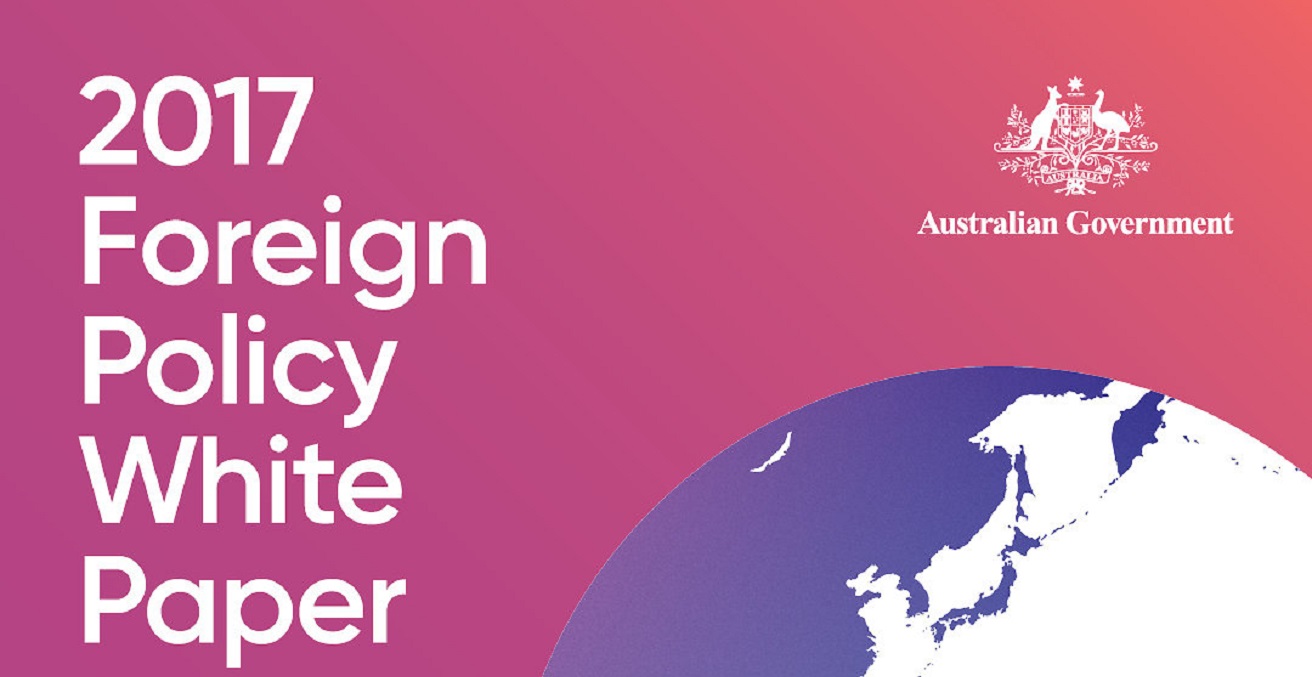Five Priorities for Australia's International Engagement

Australia’s approach to international engagement is marked by a preparedness to roll up its diplomatic sleeves and work hard. This will be especially necessary in the face of new international challenges.
Billions of people, now, all across the world, enjoy greater and greater levels of prosperity because of economic development, built on security and rules and institutions that support open trade and investment.
As the 2017 Foreign Policy White Paper makes clear, this process of globalisation has created today’s world: one of unprecedented interconnections and interdependence.
The white paper examines several other trends that are changing our international environment, from shifts in demography to climate change and the challenges posed by fragile states. It is not, I should say, a gloomy or pessimistic document. The paper is equally clear about the opportunities we have, driven by technological advances and our connections to dynamic economies. Or, as the prime minister states in his introduction:
These are the most exciting times, the times of greatest opportunity, but they are also times of uncertainty, of risk, indeed of danger.
At this critical time, the government has set five clear priorities in the white paper:
- Working to keep our Indo-Pacific region peaceful and prosperous at a time of change.
- Maximising opportunities for Australian businesses by keeping markets open and trade and investment flowing.
- Ensuring Australians remain safe, secure and free in the face of threats like terrorism
- Promoting a world with rules that support stability and prosperity and that also enable cooperation to tackle the many challenges that states cannot deal with alone.
- Stepping up support for a more resilient Pacific, which is of fundamental importance to Australia.
To start with that first objective, no long-term foreign policy goal is more important to Australia than working to keep our region peaceful and prosperous at a time of change. We will strengthen our alliance with the United States and support the deep engagement of the United States in the economic and security affairs of the region. Talk of US retrenchment and withdrawal is, to put it mildly, premature and misreads the depth, strength and vitality of US economic engagement and its security alliances.
Equally, the white paper is founded on a clear-eyed understanding that China’s influence in the Indo-Pacific will grow, and that its power is focussed regionally rather than spread globally like that of the United States. Australia is therefore also committed to boosting our relationships with other Indo-Pacific partners, including the major democracies of Japan, Indonesia, India and Korea in order to achieve a balance in the region favourable to our interests. These are major bilateral partners in their own right, and countries that will influence the shape of the regional order in the 21st century.
Boosting our relations with the countries of ASEAN is a major focus for the government, as seen through the recent agreement to establish a new strategic partnership with Vietnam.
The government is also clear about its ambitions in our engagement with China. The white paper underlines several important points about China:
- It is clearly a major geopolitical player with the capacity to influence virtually all of our interests.
- It is by far our largest trading partner, and a major investor and a burgeoning centre for science, innovation and research.
- Our cooperation spans many interests, often well beyond the economic sphere, including in areas such as law enforcement.
- Our societies are increasingly connected, including through flows of migrants, students and visitors.
The government recognises China’s importance to Australia and pursues active and positive engagement. We know, however, that closer engagement will sometimes lead to friction because of the many differences between us. But we do not let those differences define our relationship as we seek to advance our interests in a contested region.
The white paper makes the case that economic openness—at home and abroad—supports Australia’s prosperity, and helps make our country stronger and more influential. The government is emphatic about the importance to Australia of keeping markets open and trade and investment flowing. This is the second main objective for our foreign policy.
This partnership is also important to the Australian government’s national security agenda, which is the third policy priority in the white paper. The government is committed to doing everything possible to keep Australians safe, and protect our freedoms and our way of life from security threats like terrorism and cyber-attacks. Building resilience to these threats is a strong theme of the white paper and the government’s approach to national security more broadly.
A regional power with global interests
Globally, we have entered a period in which we can no longer take for granted the economic and security benefits of a rules-based order. Australia will act to support an international system that helps ensure all states can pursue their interests securely. This global agenda is our fourth foreign policy priority and one that underscores the foreign minister’s strong sense that we might be a regional power but we do have global interests. The rules become more important to Australia as the distribution of power changes globally.
We need to pursue an agenda that strengthens these rules even as we support US leadership of the international system in tangible ways, including through our contributions to coalition operations in support of global and regional security. The government is clear that strong US engagement globally is critical to our interests. It is important not only to our security, but to the effectiveness and the liberal character of the international order.
Closer to home, we are delivering a step-change in our engagement with Pacific island countries. Their security and stability is a fundamental Australian interest. Our links in this region are enduring; what is new is our agenda to engage with the Pacific with greater intensity and ambition building on further substantial investments in the region’s development.
We will promote greater economic cooperation and integration with Australia’s economy, including through a new Pacific labour scheme. This means more growth and jobs for our partners and help for Australian businesses in industries with labour shortages. We will do more with our Pacific partners to tackle security challenges, with a focus on maritime issues.
Prime Minister Turnbull has said that Australia must be “sovereign, not reliant” and I think that captures our approach to international engagement, our preparedness to roll up our sleeves. Our record to date is strong, and there will be considerable continuity as we adapt current lines of work to the new international challenges.
Frances Adamson is Secretary of the Department of Foreign Affairs and Trade.
This is an edited extract of the 2017 Sir James Plimsoll Lecture delivered by Adamson on 7 December 2017. A full transcript of the speech can be found here.
The annual Sir James Plimsoll Lecture is jointly presented by the Australian Institute of International Affairs Tasmania Branch, the University of Tasmania and the Department of Foreign Affairs and Trade.
This article is published under a Creative Commons Licence and may be republished with attribution.





